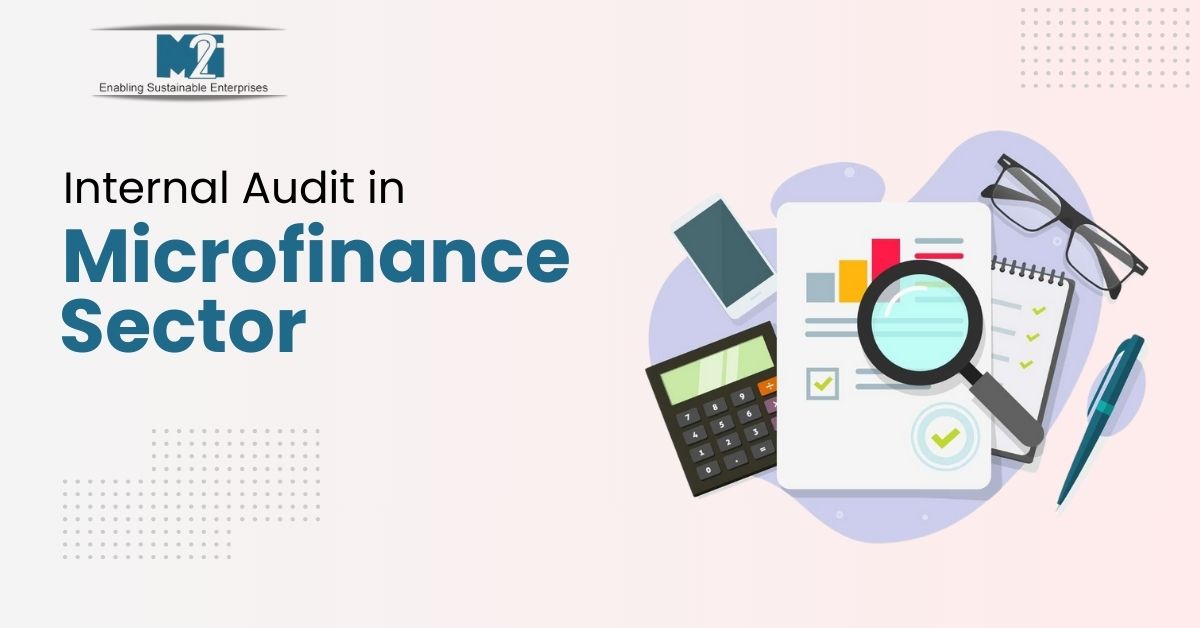
Internal Audit in Microfinance Sector
Internal Audit in Microfinance Sector
In the ever-evolving landscape of financial services, microfinance institutions (MFIs) have emerged as powerful agents of change. These institutions, often serving the underserved and financially marginalized populations, play a pivotal role in promoting financial inclusion and reducing poverty. However, in their pursuit of this noble mission, MFIs must tread carefully, ensuring financial stability, transparency, and accountability. This is where internal audits in the microfinance sector become indispensable.
Internal Audits: The Backbone of Microfinance
Internal audits are the unsung heroes of microfinance institutions. They are the diligent watchdogs that ensure an MFI's operations are running smoothly, efficiently, and within regulatory compliance. Let's delve into why internal audits are so crucial in the microfinance sector.
-
Risk Mitigation: Microfinance institutions often operate in highly volatile environments, dealing with economically vulnerable clients. Internal audits help identify and mitigate risks such as credit risk, operational risk, and compliance risk, which are critical for maintaining financial stability.
-
Compliance Assurance: The regulatory environment for microfinance can be complex, with rules varying from region to region. Internal audit teams ensure that MFIs adhere to all relevant laws and regulations, minimizing the risk of legal complications and reputational damage.
-
Fraud Detection and Prevention: Fraud is a constant threat in the financial sector, and MFIs are no exception. Internal audits help detect irregularities, whether they involve staff misconduct, misappropriation of funds, or data breaches. By identifying these issues early, internal audits can prevent significant financial losses.
-
Efficiency Improvement: Through the analysis of internal processes and workflows, internal audits can identify areas where efficiency can be improved. Streamlining operations not only reduces costs but also enhances customer satisfaction.
-
Data Integrity and Security: As digitalization sweeps through the microfinance sector, data security becomes paramount. Internal audits ensure that sensitive customer information is adequately protected and that data integrity is maintained.
-
Financial Transparency: Investors and donors are more likely to support MFIs that can demonstrate financial transparency and accountability. Internal audits provide assurance to stakeholders that their investments are being managed prudently.
Key Challenges in Internal Auditing for MFIs
While the importance of internal audits in the microfinance sector cannot be overstated, it's essential to recognize the unique challenges faced by these institutions:
-
Resource Constraints: Many MFIs, especially smaller ones, struggle with limited resources. Allocating budget and personnel for internal audits can be a delicate balancing act.
-
Diverse Operational Contexts: MFIs operate in diverse settings, from rural villages to urban centers. Auditors must adapt their approach to account for these variations.
-
Client Confidentiality: Balancing the need for transparency with client confidentiality can be challenging. Auditors must ensure data privacy while maintaining transparency with stakeholders.
Conclusion
Internal audits are the bedrock of stability and accountability in the microfinance sector. They provide the necessary checks and balances to ensure that MFIs can continue their vital work of promoting financial inclusion and poverty reduction. As the microfinance sector continues to grow and evolve, so too must the role of internal audits, adapting to new challenges and innovations to safeguard the industry's integrity.
In a world where the financial well-being of the most vulnerable hangs in the balance, internal audits are not just a regulatory requirement but a moral imperative. They ensure that microfinance institutions remain on course, guided by their mission to empower those who need it most.